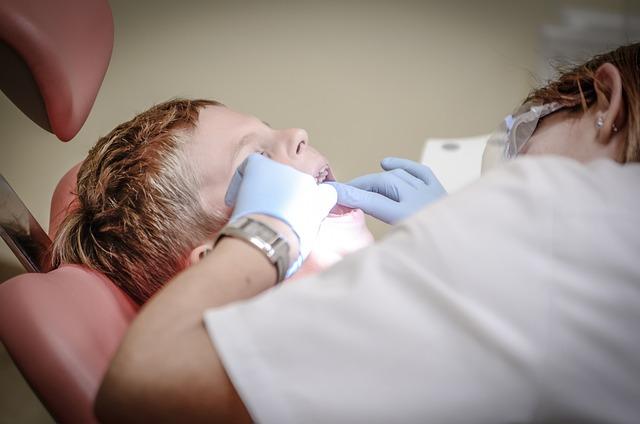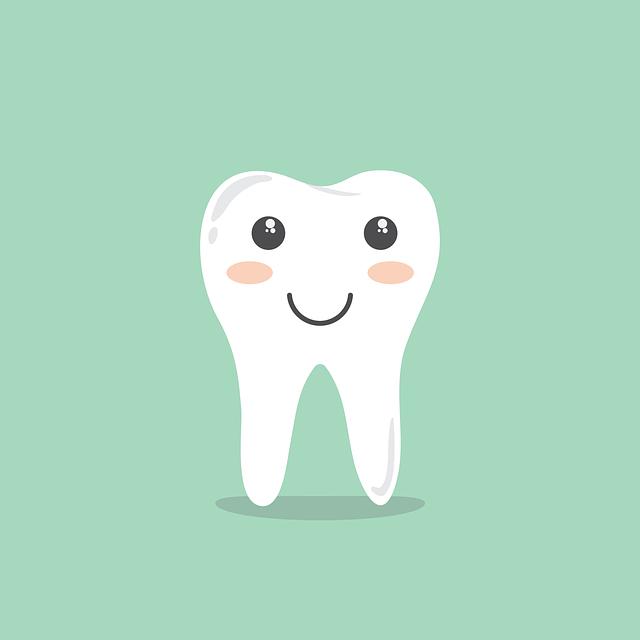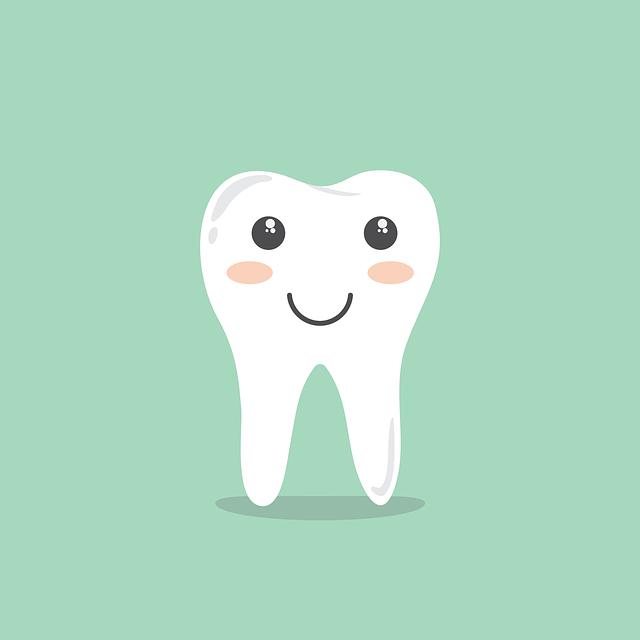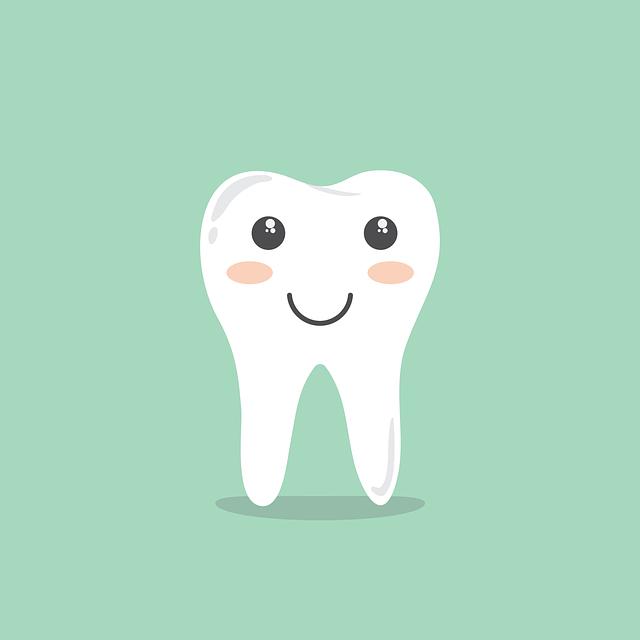Are Salt and Vinegar Chips Bad for My Teeth? Dental Insights
Have you ever found yourself indulging in a bag of salt and vinegar chips, only to wonder if they are wreaking havoc on your teeth? Well, rest assured, you’re not alone. Many of us have questioned whether these tangy and addictive snacks could be detrimental to our dental health. In this article, we will delve into the world of salt and vinegar chips and provide you with valuable dental insights to help you make informed decisions about your snacking habits. So, grab a chip (or two) and let’s explore the truth behind the impact of these tantalizing treats on your pearly whites.
1. Understanding the Impact of Salt and Vinegar Chips on Dental Health
Salt and vinegar chips have gained immense popularity in recent years due to their tangy and savory flavor. However, it is important to understand the impact these chips can have on our dental health. While they may be delicious, indulging in salt and vinegar chips frequently can lead to several dental issues.
1. Enamel Erosion: The acidic nature of salt and vinegar chips can gradually wear away the protective enamel layer of our teeth. This erosion can make our teeth more susceptible to cavities, sensitivity, and discoloration.
2. Increased Risk of Gum Disease: Regular consumption of salt and vinegar chips can also contribute to gum disease. The high salt content in these chips can cause dehydration, leading to dry mouth. Dry mouth reduces saliva production, which is essential for neutralizing acids and protecting our gums from harmful bacteria.
3. Tooth Sensitivity: The combination of salt and vinegar can irritate the sensitive nerves within our teeth, resulting in increased tooth sensitivity. This can cause discomfort when consuming hot or cold foods and beverages.
To maintain optimal dental health, it is important to consume salt and vinegar chips in moderation. Additionally, practicing good oral hygiene, such as regular brushing, flossing, and visiting the dentist, can help mitigate the potential negative effects of these tasty snacks.

2. Unveiling the Truth: Debunking Myths about Salt and Vinegar Chips and Tooth Damage
Myth 1: Salt and vinegar chips erode tooth enamel.
Contrary to popular belief, salt and vinegar chips do not directly erode tooth enamel. While these chips are acidic due to the vinegar content, the acidity alone is not enough to cause significant damage to your teeth. In fact, the pH level of vinegar is similar to that of stomach acid, which our bodies naturally handle.
- Acidic foods and beverages can temporarily soften tooth enamel, but the saliva in our mouths quickly neutralizes this acidity, allowing the enamel to reharden.
- It’s important to note that consuming salt and vinegar chips in moderation, as part of a balanced diet, will not harm your teeth.
Myth 2: Salt and vinegar chips lead to cavities.
While the acidic nature of salt and vinegar chips may cause temporary enamel softening, it doesn’t directly cause cavities. Cavities occur when bacteria in our mouths feed on the sugars and starches left behind after eating, producing acid that attacks tooth enamel. Therefore, the key factor in cavity formation is the presence of sugars, not the acidity of the food.
- To reduce the risk of cavities, it’s advisable to brush your teeth within 30 minutes of consuming any food or drink, including salt and vinegar chips.
- Regular dental check-ups, proper oral hygiene, and a well-balanced diet are all important factors in maintaining good dental health.
Myth 3: Salt and vinegar chips cause tooth sensitivity.
While some individuals may experience temporary tooth sensitivity when consuming acidic foods like salt and vinegar chips, it is not a long-term issue. Sensitivity occurs when the dentin layer beneath the enamel becomes exposed, usually due to gum recession or enamel erosion. While the acidity of these chips may cause a brief sensation, it does not contribute to the development of tooth sensitivity in the long run.
- If you have pre-existing tooth sensitivity, it’s advisable to consume acidic foods in moderation and consult with your dentist for personalized advice.
- Remember that maintaining good oral hygiene practices, such as regular brushing and flossing, can help prevent and alleviate tooth sensitivity.

3. The Science Behind Salt and Vinegar Chips: Exploring the Effects on Dental Enamel
Salt and vinegar chips are a popular snack enjoyed by many, but have you ever wondered about the effects they have on dental enamel? In this section, we will delve into the science behind these tangy treats and explore the impact they can have on your teeth.
1. Acidic nature of salt and vinegar chips: Salt and vinegar chips get their distinctive flavor from the combination of salt and acetic acid, which is found in vinegar. Acetic acid is a weak acid that can erode dental enamel over time. When you consume these chips, the acidic nature of the vinegar can cause the pH levels in your mouth to drop, leading to demineralization of the enamel.
2. Demineralization and dental enamel: Dental enamel is the outer protective layer of our teeth. It is composed mostly of minerals like hydroxyapatite, which give it its strength and durability. However, when exposed to acidic substances like vinegar, the minerals in the enamel start to dissolve, resulting in demineralization. Over time, repeated exposure to acid can weaken the enamel, making it more susceptible to damage and tooth decay.
3. Potential consequences: Regular consumption of salt and vinegar chips, especially without proper oral hygiene practices, can lead to various dental issues. These may include tooth sensitivity, enamel erosion, increased risk of cavities, and even tooth loss in severe cases. It is important to be mindful of the frequency and amount of these acidic snacks we consume, and to take steps to protect our dental health, such as rinsing the mouth with water after eating and maintaining a good oral hygiene routine.

4. Dental Insights: How Salt and Vinegar Chips Can Affect Your Teeth
When it comes to snack choices, salt and vinegar chips are a popular favorite for many people. However, it’s important to understand how these tasty treats can potentially impact your dental health.
One of the main concerns with salt and vinegar chips is their high acidity level. The combination of salt and vinegar creates an acidic environment in your mouth, which can erode the protective enamel on your teeth over time. This erosion can lead to tooth sensitivity, cavities, and even tooth decay if not properly addressed.
Additionally, the crunchy nature of these chips can pose a risk to your teeth. Biting into hard and crispy chips can cause microfractures in your teeth, making them more susceptible to further damage or even chipping. It’s important to be mindful of how you chew these snacks to minimize the risk of dental issues.
To minimize the potential negative effects of salt and vinegar chips on your teeth, consider the following tips:
- Enjoy these chips in moderation, as excessive consumption can increase the risk of dental problems.
- After consuming salt and vinegar chips, rinse your mouth with water to help neutralize the acidity and remove any lingering particles.
- Wait at least 30 minutes before brushing your teeth after eating these chips. The acid in the vinegar softens the enamel temporarily, and brushing immediately can cause further damage.
- Consider alternative snack options that are less acidic and pose less risk to your dental health, such as plain popcorn or veggie sticks.
Remember, maintaining good dental health involves making informed choices about the foods we consume. By understanding how salt and vinegar chips can affect your teeth and taking steps to minimize their impact, you can continue to enjoy your favorite snacks while keeping your smile healthy.
5. Examining the Risks: Are Salt and Vinegar Chips Harmful to Dental Health?
When it comes to examining the risks, it’s important to address whether salt and vinegar chips are harmful to dental health. While these chips may be a popular snack choice, understanding their potential impact on our teeth is crucial.
1. Acidic nature: Salt and vinegar chips contain vinegar, which is acidic. This acidity can erode the enamel on our teeth over time, making them more susceptible to cavities and sensitivity. It’s important to note that the severity of this erosion depends on various factors, including the frequency and duration of chip consumption, overall oral hygiene, and individual susceptibility.
2. Sodium content: Salt is a primary ingredient in these chips, and excessive sodium intake can lead to various health issues, including high blood pressure. While the impact on dental health may not be direct, it’s important to consider the overall effects of consuming excessive amounts of salt, as they can indirectly affect oral health.
3. Moderation and oral hygiene: As with any food or snack, moderation is key. Enjoying salt and vinegar chips occasionally and in small portions can help minimize potential risks. Additionally, maintaining a good oral hygiene routine, including regular brushing, flossing, and dental check-ups, can help mitigate any negative effects on dental health.
6. Protecting Your Smile: Tips to Minimize the Potential Damage from Salt and Vinegar Chips
When indulging in the irresistible crunch of salt and vinegar chips, it’s important to be mindful of the potential damage they can cause to your smile. Here are some tips to help minimize any negative effects:
- Practice moderation: Enjoy salt and vinegar chips in moderation to minimize the amount of acid and salt exposure to your teeth.
- Rinse with water: After consuming these chips, rinse your mouth with water to help wash away any residual acids or particles.
- Wait before brushing: Avoid brushing your teeth immediately after eating salt and vinegar chips, as the abrasive action of brushing can further damage the enamel weakened by the acids. Instead, wait at least 30 minutes before brushing.
- Use fluoride toothpaste: Brushing twice a day with a fluoride toothpaste can help strengthen your enamel and protect against cavities.
- Consider a straw: If you can’t resist indulging in salt and vinegar chips frequently, using a straw to consume acidic beverages can help minimize direct contact with your teeth.
- Visit your dentist: Regular dental check-ups are essential for maintaining good oral health. Your dentist can provide personalized advice and treatments to help protect your smile.
By following these tips, you can still enjoy the occasional salt and vinegar chip treat while minimizing the potential damage to your smile. Remember, maintaining good oral hygiene and seeking professional dental care are key to keeping your teeth healthy and strong.
7. Expert Advice: Dentists Shed Light on the Relationship Between Salt and Vinegar Chips and Tooth Decay
In this section, we will explore the expert advice of dentists on the intriguing relationship between salt and vinegar chips and tooth decay. These tangy and addictive snacks have gained popularity in recent years, but are they harmful to our teeth? Let’s find out what dental professionals have to say.
1. Acidity Levels: Salt and vinegar chips are known for their acidic nature, which can pose a risk to dental health. The high acidity can erode the protective enamel layer of our teeth over time, making them more susceptible to decay and cavities.
2. Increased Sensitivity: Regular consumption of salt and vinegar chips may lead to tooth sensitivity. The acid in these snacks can cause the dentin, the layer beneath the enamel, to become exposed, resulting in discomfort or pain when consuming hot, cold, or sweet food and beverages.
3. Moderation is Key: While salt and vinegar chips may be tempting, dentists recommend enjoying them in moderation. Limiting the frequency and duration of exposure to acidic snacks can help reduce the risk of tooth decay. Additionally, rinsing the mouth with water after consuming these chips can help neutralize the acidity and minimize potential damage to the teeth.
8. A Closer Look: Understanding the Specific Ingredients in Salt and Vinegar Chips and Their Dental Impact
Salt and vinegar chips are a popular snack choice for many, but have you ever wondered about the specific ingredients in these tangy treats and their impact on dental health? Let’s take a closer look at the components that make up these chips and how they can affect your teeth.
1. Salt: Salt is a key ingredient in salt and vinegar chips, providing that savory flavor we all love. However, excessive salt consumption can lead to dehydration and an increased risk of gum disease. It’s important to enjoy these chips in moderation and make sure to drink plenty of water to counterbalance the salt intake.
2. Vinegar: The acidic nature of vinegar is what gives these chips their tangy taste. While vinegar itself is not harmful to teeth, excessive consumption can lead to enamel erosion over time. It’s crucial to be mindful of the amount of vinegar chips you consume and to practice good oral hygiene habits, such as brushing and flossing regularly.
3. Other Ingredients: In addition to salt and vinegar, salt and vinegar chips may contain other ingredients like potato slices, vegetable oil, and various seasonings. These ingredients are generally not harmful to dental health, but it’s important to be aware of any potential allergens or additives that may be present.
In conclusion, salt and vinegar chips can be enjoyed as an occasional snack, but it’s essential to be mindful of their impact on dental health. Moderation is key, and maintaining good oral hygiene habits will help minimize any potential adverse effects. Remember to enjoy these chips responsibly and take care of your teeth for a healthy smile.
9. Maintaining Dental Health While Enjoying Salt and Vinegar Chips: Practical Strategies for a Healthy Smile
Salt and vinegar chips can be a delicious snack, but they can also pose a challenge to maintaining dental health. Here are some practical strategies to help you enjoy these chips while still keeping your smile healthy:
- Brushing and flossing: One of the most important steps in maintaining dental health is to brush and floss regularly. Make sure to brush your teeth at least twice a day and floss once a day to remove any food particles or plaque that may accumulate from eating salt and vinegar chips.
- Rinsing with water: After indulging in salt and vinegar chips, rinse your mouth with water. This will help wash away any lingering acid and salt that could potentially harm your teeth.
- Moderation: Enjoying salt and vinegar chips in moderation is key. Try not to make them a regular part of your diet and limit your consumption to special occasions. This will help minimize the potential negative impact on your dental health.
- Choosing alternative snacks: If you find it hard to resist the temptation of salt and vinegar chips, consider healthier snack alternatives that are less harmful to your teeth. Opt for crunchy vegetables like celery or carrot sticks, which can help stimulate saliva production and naturally cleanse your teeth.
By following these practical strategies, you can still indulge in salt and vinegar chips while taking care of your dental health. Remember to maintain a good oral hygiene routine and make mindful choices when it comes to snacking.
10. Conclusion: Striking a Balance between Enjoyment and Dental Well-being with Salt and Vinegar Chips
After exploring the effects of salt and vinegar chips on dental well-being, it is clear that striking a balance between enjoyment and oral health is crucial. While these chips offer a delicious and satisfying snacking experience, their high salt and acid content can pose risks to our teeth.
Here are some key takeaways to keep in mind:
- 1. Moderation is key: Enjoying salt and vinegar chips occasionally rather than regularly can help minimize the potential damage to our teeth.
- 2. Rinse with water: After indulging in these chips, rinsing your mouth with water can help remove any residue and dilute the acidity, reducing the impact on tooth enamel.
- 3. Practice good oral hygiene: Regular brushing and flossing, along with routine dental check-ups, are essential for maintaining overall dental well-being, even when indulging in salt and vinegar chips.
In conclusion, while it is important to enjoy our favorite snacks like salt and vinegar chips, it is equally important to be mindful of the potential effects on our dental health. By following these simple tips and maintaining a balanced approach, we can continue to enjoy our favorite treats while keeping our teeth strong and healthy.
Frequently Asked Questions
Q: Are salt and vinegar chips bad for my teeth?
A: While salt and vinegar chips may be a tasty snack, they can have negative effects on your dental health. Let’s dive into the dental insights to get a clearer picture.
Q: What makes salt and vinegar chips potentially harmful to teeth?
A: The acidity of vinegar in these chips, combined with the salt content, can be damaging to tooth enamel over time. Acids erode the protective layer of enamel, making teeth more susceptible to decay and sensitivity.
Q: How does tooth enamel erosion occur?
A: Tooth enamel erosion happens when the acids in foods and beverages come into contact with your teeth. This process gradually wears away the enamel, which is the outer layer that protects the sensitive inner layers of your teeth.
Q: What are the consequences of enamel erosion?
A: Enamel erosion can lead to a variety of dental issues, including increased tooth sensitivity, tooth discoloration, and an increased risk of cavities. It also weakens the overall structure of the teeth, making them more prone to damage.
Q: Can I still enjoy salt and vinegar chips?
A: While it’s best to limit your consumption of salt and vinegar chips, it’s not necessary to completely eliminate them from your diet. Moderation is key. Instead, consider enjoying them as an occasional treat, and make sure to practice good oral hygiene habits afterwards.
Q: How can I protect my teeth while enjoying salt and vinegar chips?
A: To minimize the potential harm, you can take a few preventative steps. Firstly, rinse your mouth with water after eating these chips to help wash away some of the acidity. Secondly, wait for at least 30 minutes before brushing your teeth, as brushing immediately after consuming acidic foods can cause further enamel damage.
Q: What other snacks can I choose that are less harmful to my teeth?
A: Opting for healthier snack alternatives can help protect your dental health. Foods like fresh fruits, vegetables, nuts, and cheese contain fewer acids and sugars, making them better choices for your teeth. Remember, a balanced diet and good oral hygiene are essential for maintaining optimal dental health.
Q: How often should I visit the dentist to ensure my teeth stay healthy?
A: Regular dental check-ups are crucial for maintaining good oral health. It is generally recommended to visit your dentist every six months, or as advised by your dental professional. These visits allow for early detection of any dental issues and ensure proper dental care.
Q: What are some other tips to keep my teeth healthy?
A: In addition to regular dental visits, maintaining a consistent oral care routine is essential. Brush your teeth at least twice a day with a fluoride toothpaste, floss daily, and consider using an antimicrobial mouthwash. Avoiding tobacco products and limiting sugary and acidic foods and drinks will also contribute to maintaining a healthy smile.
Insights and Conclusions
In conclusion, the question of whether salt and vinegar chips are bad for your teeth has been thoroughly explored, providing valuable dental insights. While these chips may be a popular snack choice, it is important to be aware of their potential impact on dental health.
Key Takeaways:
1. Acidic foods, such as salt and vinegar chips, can erode tooth enamel over time. This erosion can lead to tooth sensitivity and increased risk of cavities.
2. Consuming these chips in moderation and practicing good oral hygiene can help minimize the potential damage to your teeth.
3. Rinsing your mouth with water after enjoying salt and vinegar chips can help neutralize the acids and reduce their harmful effects.
4. It is advised to avoid brushing your teeth immediately after consuming these chips, as the tooth enamel may be temporarily weakened. Waiting at least 30 minutes before brushing is recommended.
5. Regular dental check-ups and professional cleanings are crucial to monitor and maintain your oral health, especially if you frequently indulge in acidic snacks like salt and vinegar chips.
By understanding the impact of salt and vinegar chips on your teeth and implementing these dental insights, you can enjoy your favorite snacks responsibly while still prioritizing your dental well-being. Remember, a balanced diet, proper oral hygiene, and regular dental care are key to maintaining a healthy smile.






